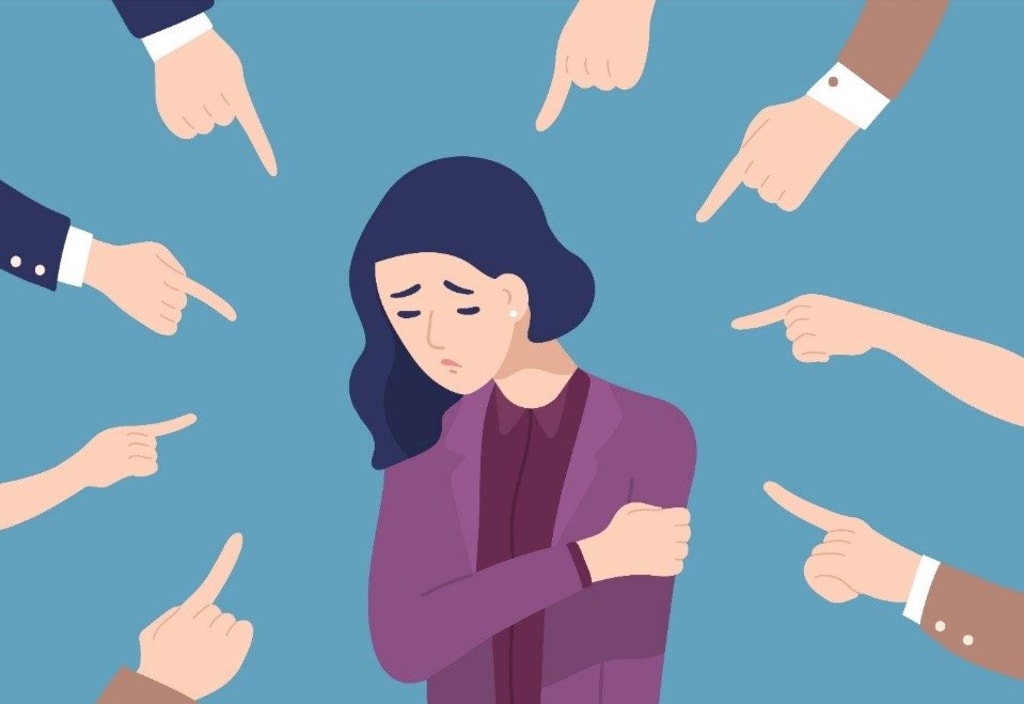Understanding and Managing the Role of the Family Scapegoat
Scapegoating

Do you often feel out of place within your own family? Are you frequently ignored or criticized? If this resonates with you, you might be the family scapegoat—a role where one person is unfairly blamed for the family's issues and frustrations. This can significantly impact your self-esteem and mental health. Here’s why this happens and how to deal with it effectively.
1. Used as an Emotional Punching Bag
Family members might direct their anger and frustration towards you, blaming you for issues that aren't your fault. For instance, if a parent comes home in a bad mood, they might take it out on you over trivial matters. This toxic environment can harm your physical and mental well-being. It's important to seek support from friends or distant relatives who can offer a sympathetic ear and encouragement. Bottling up emotions or holding grudges is unhealthy, so finding positive outlets is essential.
2. Negative Remarks to Others
Have you been badmouthed by a family member in front of friends or guests? This can be deeply hurtful and often stems from their need to appear flawless. Narcissistic parents, for example, may distance themselves from perceived flaws by blaming you. They demean you to elevate themselves, but remember, their negative comments reflect their own insecurities, not your worth. Talk about your feelings with those who genuinely care and engage in activities that boost your self-confidence.
3. Undermining Your Achievements
Do you long for recognition from your family, only to feel perpetually unappreciated? This can make you believe that you’re not good enough or that your efforts are insignificant. Remind yourself that everyone has unique strengths and progresses at their own pace. Your accomplishments matter, even if your family doesn’t acknowledge them. Their lack of appreciation often stems from their own insecurities or unrealistic standards, not your abilities or value.
4. Projecting Their Mistakes onto You
Sometimes, family members might blame you for their own errors. This happens because they’re angry or irritated and you’re the easiest target. They might not know how to manage their emotions and use you as a scapegoat. When this happens, give them space to cool off and avoid engaging in confrontations. Understand that their behavior reflects their struggles, not your faults. Accept that what they say about you isn’t true and recognize your own worth.
5. Deliberate Ignoring
Have you noticed your family members pretending you don’t exist, not inviting you to gatherings, or excluding you from conversations? This form of exclusion can be incredibly isolating. Families might do this because they feel guilty about their behavior or fear you might expose their abusive tendencies. They might also be triggered by aspects of your personality that they dislike. Remember, their avoidance doesn’t diminish your worth. Seek out an external support system and spend time with people who love and appreciate you.
6. Unfair Comparisons
Are you often unfavorably compared to siblings or cousins? This kind of toxic hierarchy can damage your self-esteem and foster unhealthy competition. Being the scapegoat might mean you’re criticized to make the “golden child” shine brighter. This dynamic often arises from narcissistic parenting, where parents push their children to unrealistic standards to maintain a façade of perfection. Understand that your value isn’t determined by these comparisons. Focus on your own growth and well-being.
Being the family scapegoat is a challenging and painful experience, but understanding the reasons behind this behavior and taking steps to cope healthily can help you regain your self-esteem and find happiness. Seek support from those who care about you, engage in activities that make you feel good, and remember that your family's treatment of you does not define you.
About the Creator
Enjoyed the story? Support the Creator.
Subscribe for free to receive all their stories in your feed. You could also pledge your support or give them a one-off tip, letting them know you appreciate their work.






Comments
There are no comments for this story
Be the first to respond and start the conversation.